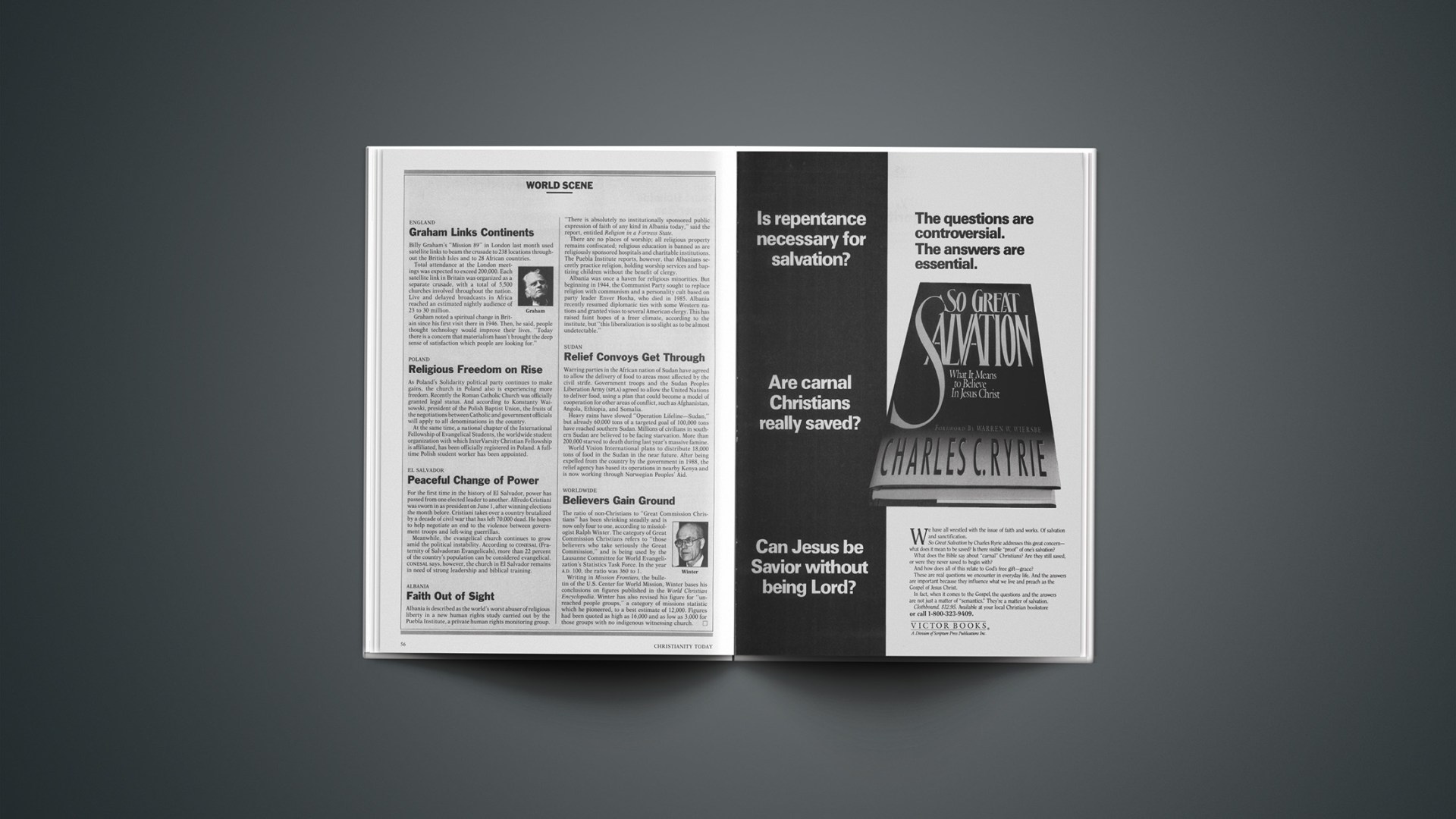David Howard is international director of World Evangelical Fellowship (WEF), an organization of 59 regional and national bodies representing 100 million evangelicals around the world. WEF relocated its headquarters to Singapore in February 1987. CHRISTIANITY TODAY spoke with Howard about the growth of the church in that small but influential city-state.
What is the status of the church in Singapore?
A recent front-page article in Singapore’s major newspaper, the Straights Times, discussed a government survey indicating that Christianity is the fastest-growing religion in the country. The article reported about 19 percent of the current population is Christian, compared with about 9 percent ten years ago. That would include Catholics and anyone who calls himself or herself a Christian. But in Singapore, those who call themselves Christians are usually what we would call evangelicals.
The most interesting part of the survey was where those Christians are found. In most non-Western countries, the Christian church is strongest in the lesser-educated strata of society. In Singapore, it’s exactly the opposite. This survey said that 41 percent of the university graduates are Christians. Thirty-eight percent of those in professional, managerial, and executive jobs are Christians.
What about the rest of society?
The professionals are primarily Chinese, who make up about 76 percent of the population. Indians are about 4 percent, and they also are found among the professionals. And this is reflected in the churches.
The Malays, who make up most of the working class, are about 14 percent of the population. They are almost all Muslims, and the church has not been very effective in reaching them with the gospel.
Why this growth pattern?
When I ask believers, “How did you become a Christian?” their answer is almost always the same: They were led to the Lord through Bible studies in high school or college—studies conducted by groups such as Youth for Christ, InterVarsity, and Navigators. Missionary studies of church growth in Singapore have shown the same. Conversion takes place most often during teenage years, in high school. These young believers go on to the university and are further discipled.
Most converts are the first Christians in their families. According to the survey I mentioned before, people are leaving Buddhism and Hinduism about equally for Christianity and secularism. Islam is holding its own.
What challenges does the church in Singapore face?
Christians there are in danger of being affected by materialism. Singapore is a very affluent society, and most of the Christians, coming from the middle and upper classes, are relatively comfortable. In any part of the world, affluence can leave believers unwilling to make the sacrifices that may be necessary for the growth of the church.
A second danger I see is that of insensitivity to the social needs of other people. Singapore doesn’t have a lot of poverty. The government has been tremendously effective in its economic policies.
The closest thing to poverty in Singapore is found among the foreign workers, who come from Thailand or Malaysia to do construction jobs for the growing city, sending money back to their families. The church has not done enough to try to reach these people and to do something for them both spiritually and physically.
What are some other characteristics of the church in Singapore?
There is a good missions consciousness. About 250 Singaporeans are serving as missionaries in other parts of the world.
Singapore Christians, however, are also big on three or four-week mission trips to India or the Philippines, to build a church or a school building, or to sing and have gospel meetings. Church leaders in Singapore point to the danger that Christians view these trips as fulfillment of their missionary obligation. Unfortunately, these trips also use large amounts of money—much more than what is currently going into long-term missions.
But I’m pleased with the aggressiveness of the church. It is still growing. It’s made up largely of young people, first-generation Christians, who still have that first love and evangelistic enthusiasm.










